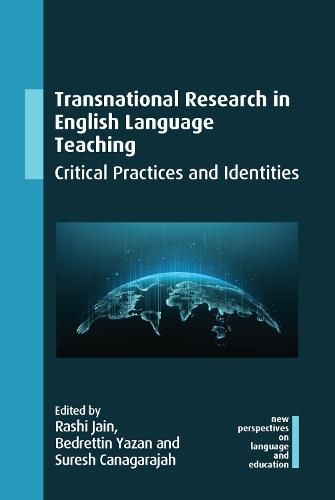Readings Newsletter
Become a Readings Member to make your shopping experience even easier.
Sign in or sign up for free!
You’re not far away from qualifying for FREE standard shipping within Australia
You’ve qualified for FREE standard shipping within Australia
The cart is loading…






This edited volume contributes to the creation of a comprehensive and a more inclusive understanding of an increasingly complex global ELT landscape across countries as well as across teaching and learning settings. The volume brings together inquiries from language teachers, educators and researchers from different backgrounds in the Global South and the Global North, who use their experiences of shuttling across borders to reflect on the shaping of their pedagogical, research and professional practices across higher education settings. The chapters weave the personal, professional and theoretical in a seamless manner, examining transnational identities and pedagogical practices formed and informed by both communities - ‘home’ and ‘host’ - and include narratives that are not unidirectional. The contributing authors also use a variety of qualitative research methods, along with reflexive writing and exploration of the authors’ own positionalities, to shed light on transnational identities and critique dominant pedagogical assumptions.
$9.00 standard shipping within Australia
FREE standard shipping within Australia for orders over $100.00
Express & International shipping calculated at checkout
This edited volume contributes to the creation of a comprehensive and a more inclusive understanding of an increasingly complex global ELT landscape across countries as well as across teaching and learning settings. The volume brings together inquiries from language teachers, educators and researchers from different backgrounds in the Global South and the Global North, who use their experiences of shuttling across borders to reflect on the shaping of their pedagogical, research and professional practices across higher education settings. The chapters weave the personal, professional and theoretical in a seamless manner, examining transnational identities and pedagogical practices formed and informed by both communities - ‘home’ and ‘host’ - and include narratives that are not unidirectional. The contributing authors also use a variety of qualitative research methods, along with reflexive writing and exploration of the authors’ own positionalities, to shed light on transnational identities and critique dominant pedagogical assumptions.